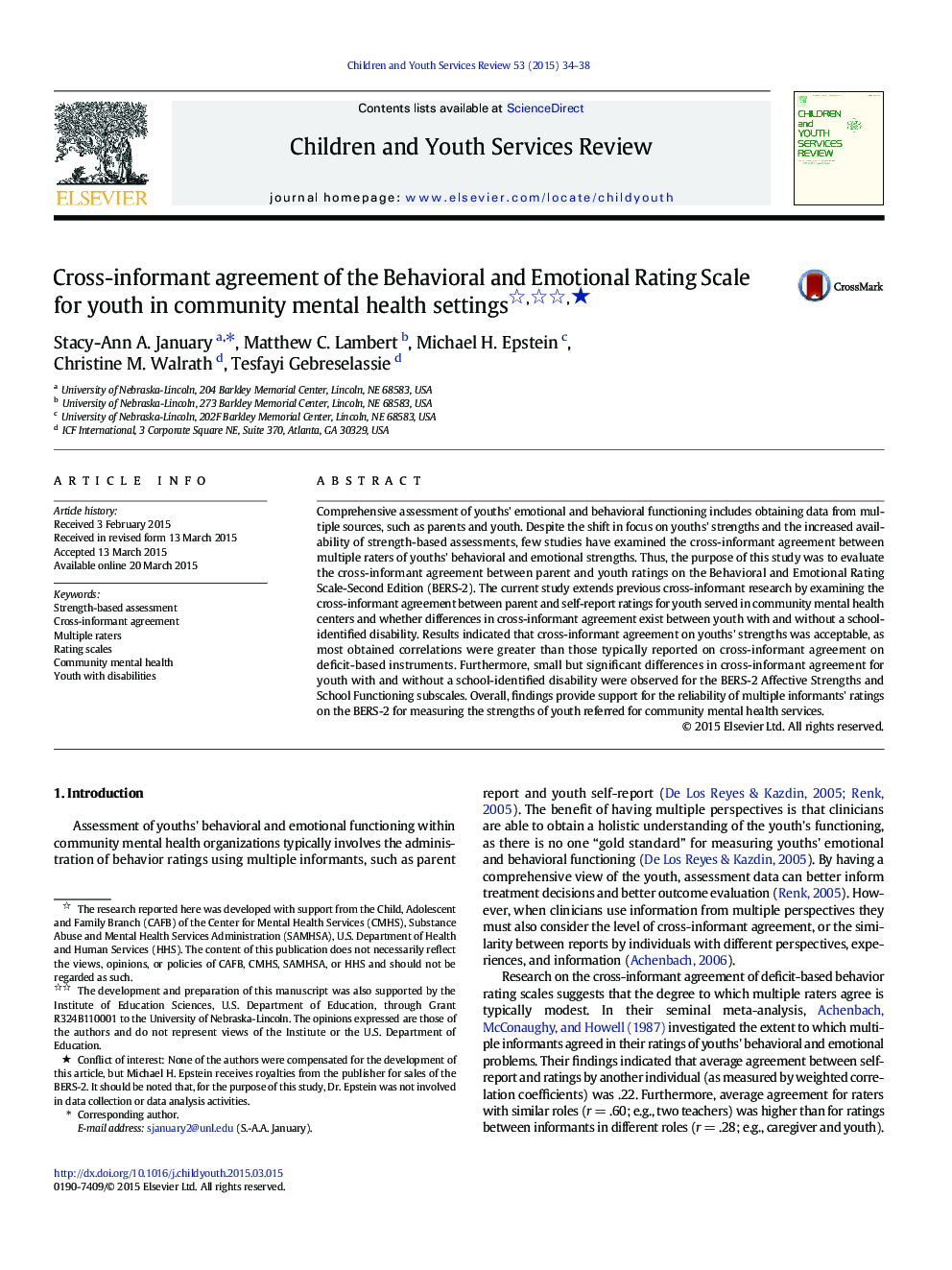| Article ID | Journal | Published Year | Pages | File Type |
|---|---|---|---|---|
| 6834019 | Children and Youth Services Review | 2015 | 5 Pages |
Abstract
Comprehensive assessment of youths' emotional and behavioral functioning includes obtaining data from multiple sources, such as parents and youth. Despite the shift in focus on youths' strengths and the increased availability of strength-based assessments, few studies have examined the cross-informant agreement between multiple raters of youths' behavioral and emotional strengths. Thus, the purpose of this study was to evaluate the cross-informant agreement between parent and youth ratings on the Behavioral and Emotional Rating Scale-Second Edition (BERS-2). The current study extends previous cross-informant research by examining the cross-informant agreement between parent and self-report ratings for youth served in community mental health centers and whether differences in cross-informant agreement exist between youth with and without a school-identified disability. Results indicated that cross-informant agreement on youths' strengths was acceptable, as most obtained correlations were greater than those typically reported on cross-informant agreement on deficit-based instruments. Furthermore, small but significant differences in cross-informant agreement for youth with and without a school-identified disability were observed for the BERS-2 Affective Strengths and School Functioning subscales. Overall, findings provide support for the reliability of multiple informants' ratings on the BERS-2 for measuring the strengths of youth referred for community mental health services.
Related Topics
Health Sciences
Medicine and Dentistry
Perinatology, Pediatrics and Child Health
Authors
Stacy-Ann A. January, Matthew C. Lambert, Michael H. Epstein, Christine M. Walrath, Tesfayi Gebreselassie,
